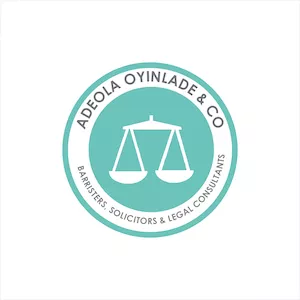- within Employment and HR topic(s)
- in United States
- with readers working within the Advertising & Public Relations, Retail & Leisure and Law Firm industries
- within Employment and HR, Real Estate and Construction and Insurance topic(s)
1.0 Introduction
Nigeria's pension industry has evolved into one of the country's most heavily regulated and financially significant sectors. At the heart of this system are Pension Fund Administrators (PFAs) licensed institutions responsible for managing employees' retirement savings and ensuring that pension assets are invested prudently, transparently, and in compliance with the law.
In the same vein, the industry has undergone major transformation since the enactment of the Pension Reform Act 2004, which was later repealed and replaced by the Pension Reform Act 2014 (PRA 2014). This reform introduced a unified regulatory framework under the National Pension Commission (PenCom), the body charged with licensing, supervising, and regulating all pension-related operations in Nigeria.
For any organisation seeking to operate as a PFA, obtaining a licence from PenCom is not merely a statutory formality; it is a rigorous process designed to ensure that only financially sound, technically competent, and professionally managed entities are entrusted with the retirement savings of Nigerian workers.
This article sets out the legal framework, licensing requirements, and application process involved in securing a PFA licence in Nigeria.
2.0 Legal Framework
The primary legal framework governing PFA licensing in Nigeria includes:
- The Pension Reform Act 2014: The principal legislation that establishes the legal basis for pension administration in Nigeria
- PenCom Guidelines and Regulations: Various guidelines issued by PenCom, including the Guidelines for Appointment to Board and Top Management Positions
- Companies and Allied Matters Act (CAMA): Governs the incorporation and operation of companies in Nigeria
3.0 Fundamental Requirements for PFA Licensing
3.1 Corporate Structure Requirements
Any organization wishing to operate as a PFA must satisfy the following corporate requirements:
- Incorporation Status
- Must be a duly incorporated limited liability or public company in Nigeria under the Companies and Allied Matters Act
- The company must be registered specifically for the purpose of pension fund administration
- Business Exclusivity
- The PFA must not engage in any business other than the management of pension funds
- This exclusivity requirement must be reflected in the company's Memorandum and Articles of Association
- Professional Capacity
- Must demonstrate professional and technical capacity to manage pension funds and administer retirement benefits
- Must possess appropriate Information and Communication Technology (ICT) infrastructure for online real-time transactions
- Minimum Capital Requirement
Before obtaining an Approval-In-Principle (AIP), applicants must provide evidence of deposit of the minimum capital prescribed by PenCom in an escrow account in any licensed commercial bank. The deposited amount will be used to:
- Finance the start-up operations
- Meet requirements for commencement of business
- Ensure adequate capitalization for the volume of business
Investors must also provide an undertaking that the PFA will be adequately capitalized for the volume of its business at all times.
4.0 The Application Process
Step 1: Submission of Application
A non-refundable application fee of ₦1,000,000 (One Million Naira) is to be paid through Remita to the National Pension Commission.
The application must include:
- Completed Application Form (APP/02/PFA)
- Exact name as in certificate of incorporation
- Address and contact details
- Proposed head office location
- Details of contact person for inquiries
- Corporate Documents:
- Certified True Copy of Certificate of Incorporation
- Certified True Copy of Forms C02 (Allotment of Shares), C07 (Particulars of Directors), and C06 (Location of Registered Office)
- For existing companies: Latest 3 years audited accounts and management letters
- Certified True Copy of Memorandum and Articles of Association
- Memorandum and Articles of Association Requirements:
The Memorandum and Articles must contain:
- The sole object being to conduct the business of pension fund administration
- A provision precluding the PFA from trading on its own account or engaging in self-dealing
- A limitation on the issuance of unissued share capital, rights issue, preference shares, or debentures without PenCom's prior written approval
- Technical Services Agreement:
Signed copy (where applicable)
Step 2: Business Plan Submission
A comprehensive Feasibility Report/Business Plan must include:
- Business Strategy and Objectives
- Ownership Structure
- Corporate Investor Requirements
- Capitalization Undertaking
- Organizational structure
- Branch Expansion Policy
- Financial Projections
- Governance
Step 3: Supporting Attestations and Declarations
The application must include attestations that:
- The applicant or its subscribers, directors, or officers have never mismanaged any fund
- No director or top management has been denied registration, suspended, or expelled from any government agency or Self-Regulatory Organization
- All taxes have been paid
- No bankruptcy or winding up proceedings are pending
- No criminal prosecutions are pending
- No involvement in litigation related to financial services conduct
Step 4:Approval-in-Principle (AIP)
If the application meets PenCom's preliminary standards, an Approval-in-Principle (AIP) may be granted. An AIP is valid for three months, it allows the applicant to finalise setup but does not authorise operations and during this period, PenCom monitors compliance with pre-licensing requirements.
Step 5: Requirements for Commencement of Operations
Within the AIP period, the applicant must demonstrate full operational readiness and submit the following to PenCom:
- A non-refundable licence fee of ₦5 million;
- The shareholders' register and issued share certificates;
- A certified opening statement of affairs, signed by directors and auditors;
- Evidence of installed ICT infrastructure;
- The PFA's manual of operations and minutes of the pre-commencement board meeting;
- Letters of employment for management team members; and
- Proof of established board committees,
including:
- Risk Management Committee,
- Audit Committee,
- Nomination and Governance Committee, and
- Investment Strategy Committee.
Step 6: Final Licence
After a satisfactory review and on-site inspection, PenCom issues the final PFA licence, enabling the organisation to commence pension fund administration.
5.0 Fit and Proper Requirements for Board and Management
PenCom ensures that only qualified and reputable individuals manage PFAs. Under the Guidelines for Appointment to Board and Top Management Positions in PFAs and PFCs (2005), it is mandatory that the following requirements be strictly adhered to.
- Managing Director: Must hold a degree in a numerate or semi-numerate discipline (such as finance, economics, law, accounting, or actuarial science) with at least 15 years' post-qualification experience, including 12 years in the financial sector and 8 years in senior management.
- Executive Director: Requires 12 years' post-qualification experience, including 10 years in finance and 6 years in senior management.
- Heads of Divisions: Must have at least 10 years' experience, including 8 years in the financial services sector.
- Non-Executive Directors: Must demonstrate sound judgement, integrity, and understanding of governance principles.
In addition, all nominees must complete a Personal Profile Form (APP/PPF/01) and undergo PenCom's "fit and proper" evaluation.
6.0 Conclusion
Obtaining a PFA license in Nigeria is a rigorous but necessary process designed to protect the retirement savings of Nigerian workers. The stringent requirements ensure that only well-capitalized, professionally managed, and ethically sound organizations are entrusted with pension fund administration.
Prospective applicants should:
- Engage qualified legal and financial advisors
- Ensure full compliance with all PenCom requirements
- Maintain transparency throughout the process
- Build a strong, experienced management team
- Develop realistic and sustainable business models
The content of this article is intended to provide a general guide to the subject matter. Specialist advice should be sought about your specific circumstances.
[View Source]

